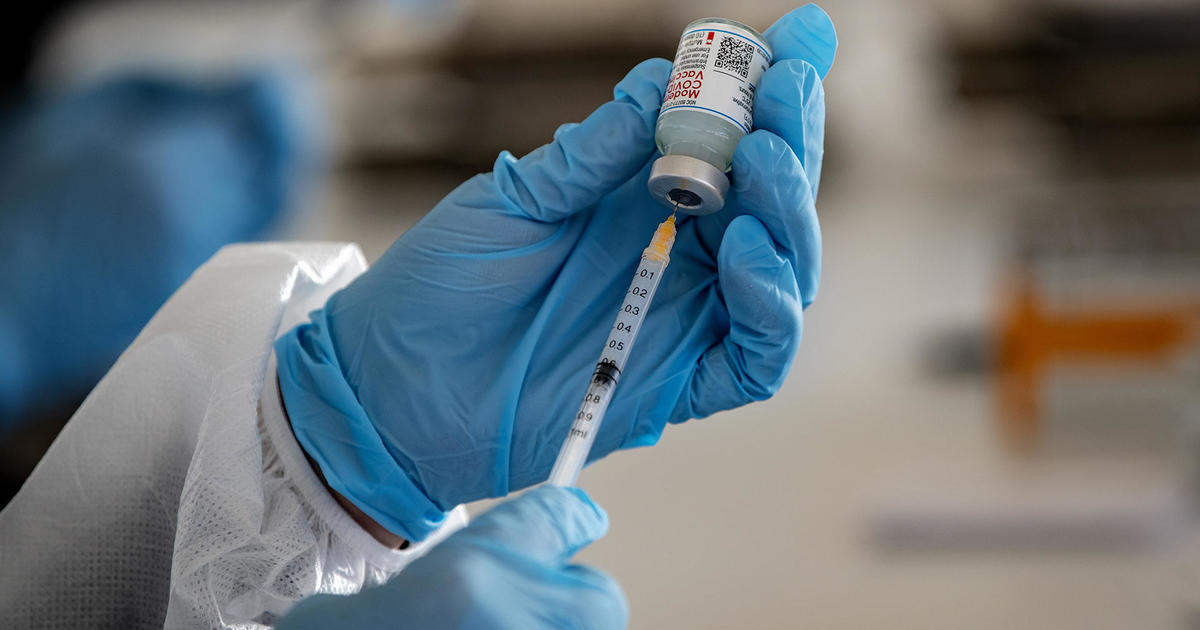
Erin Farmer has never considered himself obese. The 25-year-old threw shot put in the 2016 U.S. Olympic trials and was a Division 1 athlete for the state of Arkansas – but the Texas Department of State Health Services and the Centers for Disease Control and Prevention said they did.
Farmer, like 42.5% of Americans, has a body mass index of more than 30, making her eligible for the coronavirus vaccine in her home state. At least 29 states have expanded their vaccine eligibility to people who qualify as obese.
When she learned that the statistic qualified her for the vaccine, Farmer felt a mix of emotions. First, she was ready to make the obesity label that has followed her all her life, usually with a negative connotation, work for her. She also felt that although she met the criteria for an obese person, it was an unfair classification.
“I’ve been an athlete all my life,” she said. “So my weight doesn’t really reflect how I live and my lifestyle. I understand that people are ashamed of that because it’s clear that your weight doesn’t determine who you are as a person or how healthy you are.”
And data on public emotions related to obesity confirms this. Nirit Pisano, a clinical psychologist and chief psychologist at Cognovi Labs, a group that uses artificial intelligence to look at public emotions and behavior around certain topics, decided to use the company’s AI to study the problem after talking to a client who struggled to figure out he qualified for the vaccine as an obese person.
“I saw this huge wave of people really reacting to this emotionally, so a lot of disgust and anger,” Pisano said.
That’s because the obesity label is tough, she said.
“It’s an emotional one for a lot of people. And even those who have whether you’re struggling with weight or you’re coming to terms with your weight or at any stage, see it in writing this way or I just have a word there. “
The Centers for Disease Control and Prevention lists overweight people among those who are are at increased risk when it comes to COVID-19. As many states have expanded their eligibility, they have followed the CDC guidelines on BMI as a broad way to classify people based on whether or not they are at risk because of their size.
Sabrina Strings, associate professor of sociology at the University of California Irvine and author of “ Fearing the Black Body: The Racial Origins of Fat Phobia, ” called BMI an ineffective and offensive way to expand vaccine suitability, saying, “ There is a much greater relationship between negative outcomes and race. “
Strings believes it vaccines should have been a priority for groups based on race because the coronavirus disproportionately affects people of color. This is supported by data collected by the Covid Tracking Project, which shows that black people are 1.4 times more likely to die from the coronavirus than whites.
But the use of obesity to expand vaccine suitability follows reports that obesity is a major factor in COVID-19 hospitalizations and deaths.
For example, the World Obesity Federation found that 88% of COVID-19 deaths occurred in countries where a majority of the population was considered overweight or obese. And a Tufts University study last month found that an estimated 30.2% of US COVID-19 hospital admissions were due to obesity as a primary cardio-metabolic risk factor. Other factors considered in the study included diabetes, hypertension and heart failure. Combined, the four factors were estimated to be related to more than two-thirds of US COVID-19 hospital admissions.
However, Strings says there is no evidence that obesity is a direct cause of more deaths or hospitalizations.
“When we look at these studies, they show that they have correlations,” she said. “They always try to make it look like BMI is causing these negative health outcomes. But that’s not the information that statistics, and certainly not cross-sectional data, can provide. Cross-sectional data can only show relationships.”
Emma Specter, who qualified for the vaccine based on her BMI, wrote about the fat phobia and fat-shaking environment using the statistics to expand the vaccine’s suitability.
She said she initially spent time discussing whether or not to get the vaccine, thinking it would take one away from someone else who needs it more, or a front-line worker.
“Once it was kind of an answer for me that that’s really not how it works, I can’t, you know, send a vaccine to anyone else, it’s based on zip code and co-morbidity. Well, once I learned that , I kind of didn’t hesitate much, ‘she said.
Farmer and Specter both advocated that others get vaccinated regardless of how they qualify.
“I think if you get the chance to get it, you absolutely should get it to not only protect yourself, but also protect others around you. Well, now you get the vaccine, “said Farmer.” If you’re discouraged by the obese label, I would say that clearly has no relation to your self-esteem. “
Specter said that when she chose to get the vaccine, she needed to understand and identify herself as someone who was obese. She explained that many who have qualified by the benchmark struggle with shame and embarrassment because of the way society has characterized obese people.
“I think to be honest, we’ve cited that as a bad thing. And we’ve quoted fat people as lazy and unworthy and unhealthy and so many other things it’s really hard,” Specter said. Like someone much smarter than me, who I can’t remember at the time, said, ‘You don’t have to prove a certain level of work. You don’t have to prove real character. You don’t have to prove that you are alone. eat salads. ”